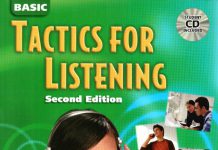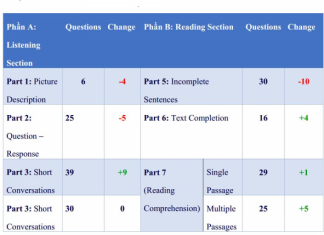Động từ trong Tiếng Anh là một thành phần hết sức quan trọng mà chúng ta cần học, tuy nhiên số lượng lại quá nhiều. Vì thế, Eng4 sẽ tổng hợp và đưa ra những động từ Tiếng Anh thông dụng và thường gặp nhất.
Danh sách từ vựng:
Ví dụ:He’ll be here soon.
Ví dụ: I have a plan.
 get (v) được, có được
get (v) được, có được
Ví dụ: He just got a new job.
Ví dụ: He makes breakfast.
Ví dụ: No one knows the answer.
 think (v) nghĩ, suy nghĩ
think (v) nghĩ, suy nghĩ
Ví dụ: Are animal able to think?
Ví dụ: No one’s gonna take it away.
Ví dụ: Did you see what happened?
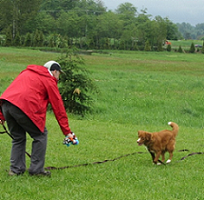 come (v) đi, đến
come (v) đi, đến
Ví dụ: After the dog came, I petted it.
 want (v) muốn
want (v) muốn
Ví dụ: Liz wants to see the gardens.
Ví dụ: He crossed a busy street by using a pedestrian overpass.
Ví dụ: He has tried to find a way to get more money, but he has failed.
 give (v) đưa, cho
give (v) đưa, cho
Ví dụ: He gives her the keys.
 tell (v) cho biết
tell (v) cho biết
Ví dụ: She told the attendant what kind of gas she wanted.
Ví dụ: I’ve come to work, I’ve come to play.
 call (v) gọi điện thoại
call (v) gọi điện thoại
Ví dụ: He called you last night when you were out.
Ví dụ: This approach has been tried with good results
Ví dụ: He came to her house and ask her parents to allow him to marry her.
 need (v) cần; muốn
need (v) cần; muốn
Ví dụ: Since last year Brad has needed money for school.
Ví dụ: I love the feel of silk. It is so soft.
Ví dụ: After a while, the water becomes tea.
 leave (v) bỏ đi, rời đi
leave (v) bỏ đi, rời đi
Ví dụ: I never leave the house without my phone.
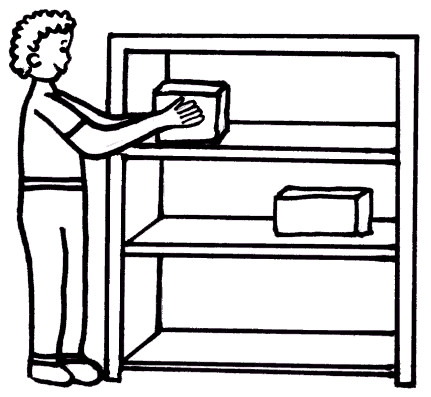 put (v) dời, đặt, để, đưa
put (v) dời, đặt, để, đưa
Ví dụ: Where have you put the keys?
Ví dụ: Wearing wedding ring on the fourth finger of the left hand means being married.
 keep (v) giữ lại
keep (v) giữ lại
Ví dụ: She told the waiter to keep the change.
Ví dụ: She let the water boil.
Ví dụ: They began to run at 5 pm.
Ví dụ: She seemed to take very good care of herself.
Ví dụ: Success is a byproduct of helping other people.
Ví dụ: She had shown herself unable to deal with money.
 hear (v) nghe
hear (v) nghe
Ví dụ: My grandfather is very old and can’t hear very well.
 play (v) chơi
play (v) chơi
Ví dụ: I play with my cat at my leisure.
 move (v) di chuyển
move (v) di chuyển
Ví dụ: He moves very fast.
Ví dụ: Some students live on the University campus.
 believe (v) tin
believe (v) tin
Ví dụ: I believe I can fly.
Ví dụ: Could you bring the bill please?
Ví dụ: Have you seen what happened ?
 write (v) viết
write (v) viết
Ví dụ: Tom writes out a check.
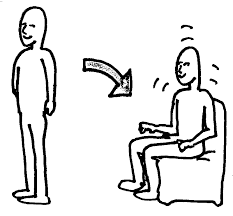 sit (v) ngồi
sit (v) ngồi
Ví dụ: Kate sat in the driver’s seat.
Ví dụ: He stands at ease.
Ví dụ: I have lost a lot of weight.
Ví dụ: You can pay a bill online using our secure payments service.
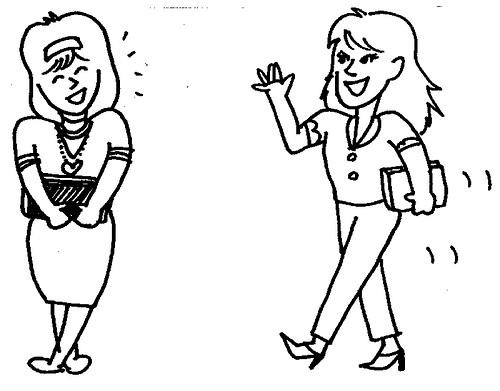 meet (v) gặp
meet (v) gặp
Ví dụ: Then I met you girl.
Ví dụ: Does the price include tax?
 continue (v) tiếp tục
continue (v) tiếp tục
Ví dụ: The rain continued to pour down all afternoon.
 set (n) bộ
set (n) bộ
Ví dụ: I always keep a tool set in the back of my car.
 learn (v) học hỏi
learn (v) học hỏi
Ví dụ: So watch and learn .
Ví dụ: Do you want to change the content of this website?
Ví dụ: The new type of husband and father leads a meaningful and rich life.
Ví dụ: Do you understand what I say?
Ví dụ: I have to watch my kids.
Ví dụ: The little boy followed his mother home.
 stop (v) dừng
stop (v) dừng
Ví dụ: Suddenly everyone stopped talking.
Ví dụ: It’s important to create a good impression when you meet a new client.
Ví dụ: Can I speak to Susan?
Ví dụ: She read the poem slowly and quietly.
 spend (v) dành, tiêu, chi (thời gian, tiền bạc,…)
spend (v) dành, tiêu, chi (thời gian, tiền bạc,…)
Ví dụ: I spent my childhood in the country.
Ví dụ: The problem grew too large for me
Ví dụ: She had left the door wide open.
Ví dụ: He went outside for a walk.
Ví dụ: He wins lottery.
Ví dụ: The methods of language instruction should teach the student to communicate creatively.
Ví dụ: David offered to help me finish my job.
Ví dụ: Tom remembered accurately the address of this package’s destination.
 consider (v) xem xét
consider (v) xem xét
Ví dụ: He’s considering buying a used car.
Ví dụ: MERS first appeared in September of 2012.
Ví dụ: I bought my camera in the supermarket.
Ví dụ: Do they serve meals on the plane?
Ví dụ: He died in the tsunami.
Ví dụ: We’ll send it by post.
Ví dụ: They will build 200 new houses.
 stay (v) ở lại
stay (v) ở lại
Ví dụ: I have a meeting at three so I can’t stay long.
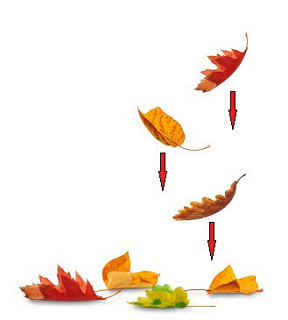 fall (v) rớt, rơi, ngã
fall (v) rớt, rơi, ngã
Ví dụ: The rain was falling steadily.
Ví dụ: I cut a piece of a board.
Ví dụ: I was happy to finally reach my destination.
Ví dụ: I could kill him.
 raise (v) nâng lên
raise (v) nâng lên
Ví dụ: Don’t raise your eyebrows.
 pass (v) vượt qua
pass (v) vượt qua
Ví dụ: The same study says that India’s economy could pass Japan’s as the world’s third largest.
Ví dụ: They sell drinks and snacks.
 decide (v) quyết định
decide (v) quyết định
Ví dụ: The family decided to sale the house.
Ví dụ: I was happy to return home to my mom after school.
 explain (v) giải thích
explain (v) giải thích
Ví dụ: If there’s anything you don’t understand, I’ll be happy to explain.
Ví dụ: We hope to have a little daughter.
 develop (v) phát triển
develop (v) phát triển
Ví dụ: You need to develop the management skill more.
 carry (v) mang, đưa đi, chở đi
carry (v) mang, đưa đi, chở đi
Ví dụ: The injured were carried away on stretchers.
Ví dụ: Who’s going to break it to her?
 receive (v) nhận, tiếp nhận
receive (v) nhận, tiếp nhận
Ví dụ: Have you received my letter yet?
Ví dụ: The school agreed to send the students on the course.
Ví dụ: The proprietor supports his employers by increasing salary.
Ví dụ: I’ve hit my head.
Ví dụ: This is a factory that produces microchips.
Ví dụ: They eat, drink, and chat together.
 cover (v) bao phủ, che phủ
cover (v) bao phủ, che phủ
Ví dụ: Much of the country is covered by forest.
Ví dụ: The roof was leaking and I had to use a bucket to catch the drips.
Ví dụ: The children drew pictures with crayons.
 choose (v) lựa chọn
choose (v) lựa chọn
Ví dụ: He wonders if he should choose a megaphone or a microphone to make his speech.
Ví dụ: He does the dishes every night.
Động từ là một loại từ chúng ta sử dụng rất thường xuyên, và trong Tiếng Anh cũng thế. Động từ trong Tiếng Anh cũng nắm giữ một vai trò hết sức quan trọng, với số lượng không hề nhỏ. Nhưng các bạn đừng lo, Eng4 sẽ giúp các bạn chỉ ra những động từ Tiếng Anh thông dụng và thường gặp nhất, các bạn nên nắm vững những động từu này để dễ dàng sử dụng trong giao tiếp hay các kỳ thi.
Động từ là một trong những thành phần chính của một câu hoặc câu hỏi trong Tiếng Anh. Trong thực tế, chúng ta không thể thành lập một câu mà thiếu đi động từ trong câu. Động từ là những từ biểu thị cho một hành động, một sự xuất hiện, hay một trạng thái nào đó. Dưới đây là một số động từ thông dụng và thường gặp nhất trong tiếng Anh.







